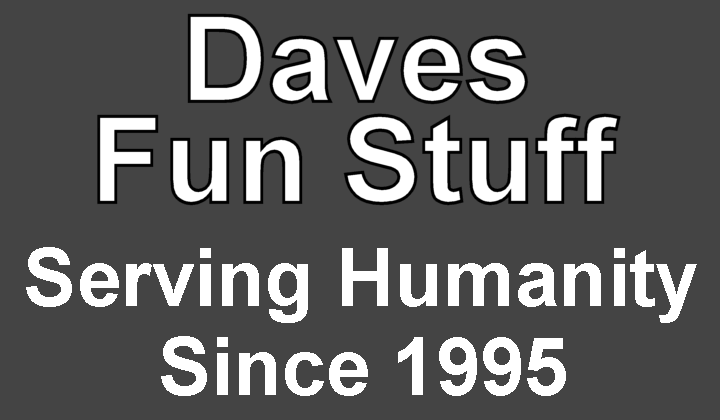 Home
DFS
SB
OD
SDN
DFSM
THP
Donate $5
Home
DFS
SB
OD
SDN
DFSM
THP
Donate $5
In 1970, Creedence Clearwater Revival and Bob Dylan received gold album awards.
In 1970, In a Brady Bunch episode called “Confessions, Confessions”, Peter breaks a vase and all the other Brady youngsters take the blame, Peter is sure his weekend camping trip will be canceled when he breaks his motherʹs favorite vase. Greg and the others decide to cover for him, but too many confessions spoil the plan.
In 1970, The Beatles released their last album, From Them To Us, a collection of their Christmas singles for their fan club.
In 1970, Creedence Clearwater Revivalʹs latest album, “Pendulum,” is added to their gold collection. Bob Dylanʹs second album, “Freewheelin'” (from 1963), is certified gold.
In 1971, On the cover of TV Guide: “The Partridge Family”. Other Articles: McCloud, Patricia Neal
In 1971, R.C., “An Old Fashioned Love Song” by Three Dog Night peaked at number four on the pop singles chart.
In 1971, R.C., “Behind Blue Eyes” by The Who peaked at #34 on the pop singles chart.
In 1971, Dial Records, a subsidiary of Mercury Records, releases Joe Texʹs funk record “I Gotcha.” In late January 1972, the song will reach number two on the pop chart. A big factor in the success of the song is Texʹs slurred delivery of the line “Told you not to play with my affection,” which causes millions of teenage girls to mistake the last word for erection.
In 1972, “Homecoming” album by America was certified Gold by the RIAA
In 1972, “Nights In White Satin” single by The Moody Blues was certified Gold by the RIAA
In 1972, “One Man Dog” album by James Taylor was certified Gold by the RIAA
In 1972, COVER STORY OF TIME “Eating may not be good for you”
In 1973, “Space Race” single by Billy Preston was certified Gold by the RIAA
In 1974, The James Bond flick “The Man With The Golden Gun” was released: Worldwide Gross: $97.6 Million
In 1974, “All The Girls In The World Beware!!!” album by Grand Funk Railroad was certified Gold by the RIAA
In 1974, “New and Improved” album by Spinners was certified Gold by the RIAA
In 1974, “Pronounced Leh-nerd Skin-nerd” album by Lynyrd Skynyrd was certified Gold by the RIAA
In 1974, “Relayer” album by Yes was certified Gold by the RIAA
In 1974, “Roadwork” album by Edgar Winter was certified Gold by the RIAA
In 1975, Rod Stewart officially solo. Announces heʹd leave the Faces permanently to concentrate on solo work.
In 1975, “Airport 1975” opened in movie theaters.
In 1975, “The Best Of Carly Simon” album by Carly Simon was certified Gold by the RIAA
In 1975, COVER OF ROLLING STONE BONNIE RAITT
In 1976, R.C., “All Roads (Lead Back To You)” by Donny Most peaked at #97 on the pop singles chart.
In 1976, R.C., “Baby Boy” by Mary Kay Place as Loretta Haggers (MH-MH) peaked at #60 on the pop singles chart.
In 1976, R.C., “Sixteen Reasons” by LaVerne and Shirley peaked at #65 on the pop singles chart.
In 1976, The Eagles release “New Kid In Town.”
In 1976, The Walt Disney Productions live-action feature film, “The Shaggy D.A.” is released in theaters.
In 1976, “A Star is Born,” with Barbra Striesand, opened in movie theaters in the U.S.A.
In 1976, “King Kong”, a remake, opens in movie theaters.
In 1976, “Wonder Woman”, TV Adventure; debut on ABC.
In 1976, The Steve Miller Bandʹs “Fly Like An Eagle” LP is released.
In 1977, “Father Knows Best: Home For Christmas” aired.
In 1978, On the Christmas episode of “M*A*S*H”, “Hereʹs to the Christmas we were supposed to be home by,” toasts Colonel Potter (Harry Morgan) to his bone-tired, war-weary medical troops in “Dear Sis,” a lovely little gem, written and directed by star Alan Alda, about keeping your sanity while half of those around you are losing theirs and the other half are losing their lives. Sweet Father Mulcahy (William Christopher), whose holiday letter home to his sister makes up this episodeʹs voice-over narration, is having a crisis: His faith in God couldnʹt be stronger, but he feels he plays no important part in the life-saving efforts at the 4077th. He hangs around, he laments, “on the edge of effectiveness.” Nobody comes to confession; his services go unattended. He gives last rites to the dying, “but if only there was something I could do for the living.” Yet by Christmas Eve, he learns that all the kind, little things he does for others are the very things that keep them going in a crazy world.
In 1978, Waylon Jennings was at #1 on the US country album chart with I've Always Been Crazy. Three singles from the album hit the country charts' top ten: the title reached #1 and "Don't You Think This Outlaw Bit's Done Got Out of Hand" peaked at #5, as did "Girl I Can Tell (You're Trying to Work It Out)". "Don't You Think This Outlaw Bit's Done Got Out of Hand" was Jennings' personal statement on the state of the outlaw movement, written after having been detained by the Drug Enforcement Administration in 1977 for possession of cocaine and conspiracy to distribute. Jennings was never convicted of the crime due to critical faults in the legal process against him.
In 1978, “Take This Job and Shove It” album by Johnny Paycheck was certified Gold by the RIAA
In 1978, “Y.M.C.A.” single by Village People was certified Gold by the RIAA
In 1978, Johnny Paycheckʹs work pays off. He earns his first gold album from the RIAA, for “Take This Job And Shove It”
In 1978, BIG BRITISH HITS THIS WEEK “DO YOU THINK IʹM SEXY” (Rod Stewart); “ALWAYS AND FOREVER” (Heatwave); “YMCA” (Village People); “HANGING ON THE TELEPHONE” (Blondie)
In 1979, Fifteen ABC affiliates refused to air an edition of the networkʹs documentary series “Close-Up” dealing with homosexuality. The program is unable to find a single sponsor for the telecast.
In 1979, On The Edge of Night, two hunters shot at Deborah (Frances Fisher) in the woods thinking she was a deer.
In 1979, Stanley Barrett is the first man to break the sound barrier on land in California (739.666 MPH).
In 1972, "Images" was released by Columbia Pictures; Robert Altman (director/screenplay); Susannah York (screenplay); Susannah York, René Auberjonois, Marcel Bozzuffi, Hugh Millais, Cathryn Harrison, Barbara Baxley, John Morley; Psychological; Horror
In 1972, "The Life and Times of Judge Roy Bean" was released by National General Pictures / First Artists; John Huston (director); John Milius (screenplay); Paul Newman, Jacqueline Bisset, Tab Hunter, John Huston, Stacy Keach, Roddy McDowall, Anthony Perkins, Anthony Zerbe, Ava Gardner, Victoria Principal, Ned Beatty, Matt Clark, Billy Pearson, Bill McKinney, Steve Kanaly, Michael Sarrazin, David Sharpe, Jack Colvin, Dick Farnsworth, Roy Jenson, Fred Krone, Dean Smith, Howard Morton, Don Starr, Stan Barrett, Jeannie Epper, Bruno, Jim Burk, Mark Headley; Western; Comedy
In 1973, "Amarcord" was released by New World Pictures; Federico Fellini (director/screenplay); Tonino Guerra (screenplay); Bruno Zanin, Magali Noël, Pupella Maggio, Armando Brancia, Ciccio Ingrassia, Alvaro Vitali, Maria Antonietta Beluzzi, Giuseppe Ianigro, Nando Orfei, Stefano Proietti, Donatella Gambini, Gianfranco Marrocco, Ferdinando De Felice, Bruno Lenzi, Bruno Scagnetti, Francesco Vona, Josiane Tanzilli; Comedy; Drama
In 1973, "Cinderella Liberty" was released by 20th Century Fox; Mark Rydell (director); Darryl Ponicsan (screenplay); James Caan, Marsha Mason, Kirk Calloway, Eli Wallach, Burt Young, Dabney Coleman, Bruno Kirby, Allyn Ann McLerie, Allan Arbus, Fred Sadoff, Jon Korkes, Don Calfa, Sally Kirkland, Mark Rydell, David Proval, Christopher Rydell, Jon Locke; Drama
In 1974, "The Front Page" was released by Universal Pictures; Billy Wilder (director/screenplay); I.A.L. Diamond (screenplay); Jack Lemmon, Walter Matthau, Vincent Gardenia, Susan Sarandon, Allen Garfield, David Wayne, Charles Durning, Austin Pendleton; Black Comedy; Drama
In 1975, "Barry Lyndon" was released by Warner Bros. / Hawk Films / Peregrine Productions; Stanley Kubrick (director/screenplay); Ryan O'Neal, Marisa Berenson, Patrick Magee, Hardy Krüger, Gay Hamilton, Godfrey Quigley, Steven Berkoff, Marie Kean, Murray Melvin, Frank Middlemass, Leon Vitali, Leonard Rossiter, André Morell, Anthony Sharp; Historical; Drama
In 1975, "The Man Who Would Be King" was released by Allied Artists Pictures Corporation; John Huston (director/screenplay); Gladys Hill (screenplay); Sean Connery, Michael Caine, Christopher Plummer, Saeed Jaffrey, Shakira Caine, Doghmi Larbi, Jack May, Albert Moses, Karroom Ben Bouih, Mohammad Shamsi, Paul Antrim, Graham Acres, PJ Retiree, The Blue Dancers of Goulamine; Adventure
In 1976, "The Cassandra Crossing" was released by AVCO Embassy Pictures / ITC Entertainment / C. Cinematografica Champion s.p.a.; George P. Cosmatos (director/screenplay); Tom Mankiewicz, Robert Katz (screenplay); Sophia Loren, Richard Harris, Burt Lancaster, Ava Gardner, Martin Sheen, O. J. Simpson, Lee Strasberg, Ingrid Thulin, Lionel Stander, Ann Turkel, John Phillip Law, Alida Valli, Lou Castel, Ray Lovelock, Thomas Hunter, Carlo De Mejo, Renzo Palmer, John P. Dulaney, Stefano Patrizi, Fausta Avelli; Disaster; Thriller
In 1977, "The World's Greatest Lover" was released by 20th Century Fox; Gene Wilder (director/screenplay); Gene Wilder, Carol Kane, Dom DeLuise, Fritz Feld, Ronny Graham, Danny DeVito, Rolfe Sedan; Parody; Comedy; Live Action
In 1976, 😉🤣 “Baby Boy” by Mary Kay Place (as Loretta Haggers) peaked at number 60 on the U.S. pop singles chart.
In 1971, ⛪ “Hallelujah” by Sweathog peaked at number 33 on the U.S. pop singles chart.
In 1976, “All Roads (Lead Back To You)” by Donny Most peaked at number 97 on the U.S. pop singles chart.
In 1971, “An Old-Fashioned Love Song” by Three Dog Night peaked at number 4 on the U.S. pop singles chart.
In 1976, “Baby, I'll Give It To You” by Seals and Crofts peaked at number 58 on the U.S. pop singles chart.
In 1971, “Behind Blue Eyes” by The Who peaked at number 34 on the U.S. pop singles chart.
In 1976, “Don't Fight The Hands (That Need You)” by Hamilton, Joe Frank and Reynolds (Hamilton, Joe Frank and Dennison) peaked at number 72 on the U.S. pop singles chart.
In 1976, “Don't Take Away The Music” by Tavares peaked at number 34 on the U.S. pop singles chart.
In 1976, “Every Face Tells A Story” by Olivia Newton-John peaked at number 55 on the U.S. pop singles chart.
In 1976, “Flight '76” by Walter Murphy peaked at number 44 on the U.S. pop singles chart.
In 1971, “Fool Me” by Joe South peaked at number 78 on the U.S. pop singles chart.
In 1971, “Friends With You” by John Denver peaked at number 47 on the U.S. pop singles chart.
In 1971, “Get Down” by Curtis Mayfield peaked at number 69 on the U.S. pop singles chart.
In 1976, “Laid Back Love” by Major Harris peaked at number 91 on the U.S. pop singles chart.
In 1971, “Let It Be” by Joan Baez peaked at number 49 on the U.S. pop singles chart.
In 1971, “Long Ago Tomorrow” by B.J. Thomas peaked at number 61 on the U.S. pop singles chart.
In 1971, “She's All I Got” by Johnny Paycheck peaked at number 91 on the U.S. pop singles chart.
In 1976, “Silver Heels” by The Blaze [U.S.] peaked at number 95 on the U.S. pop singles chart.
In 1971, “Stones” by Neil Diamond peaked at number 14 on the U.S. pop singles chart.
In 1971, “Superstar (Remember How You Got Where You Are)” by The Temptations peaked at number 18 on the U.S. pop singles chart.
In 1976, “Baby, I'll Give It To You” by Seals and Crofts peaked at number 85 on the Canada pop singles chart.
In 1971, “Devil You” by The Stampeders peaked at number 8 on the Canada pop singles chart.
In 1971, “Family Affair” by Sly and The Family Stone peaked at number 1 on the Canada pop singles chart.
In 1976, “Flying” by The Hometown Band peaked at number 79 on the Canada pop singles chart.
In 1971, “For Ladies Only” by Steppenwolf peaked at number 28 on the Canada pop singles chart.
In 1976, “Give It Up (Turn It Loose)” by Tyrone Davis peaked at number 51 on the Canada pop singles chart.
In 1971, “I'd Like To Teach The World To Sing (In Perfect Harmony)” by Hillside Singers peaked at number 58 on the Canada pop singles chart.
In 1976, “Just To Be Close To You” by The Commodores peaked at number 19 on the Canada pop singles chart.
In 1971, “L'Oiseau” by René Simard peaked at number 60 on the Canada pop singles chart.
In 1976, “Love Ballad” by L.T.D. peaked at number 38 on the Canada pop singles chart.
In 1971, “Loving You Ain't Easy” by Pagliaro peaked at number 15 on the Canada pop singles chart.
In 1976, “Mr. Melody” by Natalie Cole peaked at number 56 on the Canada pop singles chart.
In 1971, “Rock Steady” by Aretha Franklin peaked at number 12 on the Canada pop singles chart.
In 1976, “Ruby Baby” by Wednesday peaked at number 60 on the Canada pop singles chart.
In 1971, “Satisfaction” by Smokey Robinson and The Miracles peaked at number 74 on the Canada pop singles chart.
In 1976, “She's A Star (In Her Own Right)” by Nick Gilder peaked at number 70 on the Canada pop singles chart.
In 1976, “Surprise” by André Gagnon peaked at number 74 on the Canada pop singles chart.
In 1976, “Take It Or Leave It” by Moxy peaked at number 55 on the Canada pop singles chart.
In 1971, “Turned 21” by Fludd peaked at number 16 on the Canada pop singles chart.
In 1976, “Whenever I'm Away From You” by John Travolta peaked at number 61 on the Canada pop singles chart.
In 1971, “Wild Night” by Van Morrison peaked at number 20 on the Canada pop singles chart.
In 1976, “You Gotta Make Your Own Sunshine” by Neil Sedaka peaked at number 37 on the Canada pop singles chart.
In 1971, “Fireball” by Deep Purple peaked at number 15 on the U.K. pop singles chart.
In 1971, “Hooked On A Feeling” by Jonathan King peaked at number 23 on the U.K. pop singles chart.
In 1976, “Lean On Me” by Mud peaked at number 7 on the U.K. pop singles chart.
In 1971, “Little Darlin' (I Need You) / Save The Children” by Marvin Gaye peaked at number 41 on the U.K. pop singles chart.
In 1976, “Little Does She Know” by Kursaal Flyers peaked at number 14 on the U.K. pop singles chart.
In 1976, “Love Me” by Yvonne Elliman peaked at number 6 on the U.K. pop singles chart.
In 1976, “Maggie May” by Rod Stewart peaked at number 31 on the U.K. pop singles chart.
In 1971, “No Matter How I Try” by Gilbert O'Sullivan peaked at number 5 on the U.K. pop singles chart.
In 1971, “Theme From 'Shaft'” by Isaac Hayes peaked at number 4 on the U.K. pop singles chart.
In 1971, “You Gotta Have Love In Your Heart” by The Supremes and The Four Tops peaked at number 25 on the U.K. pop singles chart.
In 1976, “You'll Never Get To Heaven (If You Break My Heart)” by The Stylistics peaked at number 24 on the U.K. pop singles chart.
In 1976, “You Know That You're Sexy / School's Out At Last” by John St. Peeters peaked at number 53 on the Australian pop singles chart.
In 1976, “Don't Stop Believin'” by Olivia Newton-John peaked at number 34 on the New Zealand pop singles chart.
In 1976, “Whispering Grass” by Windsor Davies and Don Estelle peaked at number 22 on the New Zealand pop singles chart.
In 1976, “I'm Your Puppet (Version 1976)” by James and Bobby Purify peaked at number 14 on the Netherlands pop singles chart.
In 1971, “Ik heb 'n vraag” by Wilma peaked at number 19 on the Netherlands pop singles chart.
In 1971, “Pappie loop toch niet zo snel” by Herman van Keeken peaked at number 3 on the Netherlands pop singles chart.
In 1971, “Schön ist es auf der Welt zu sein” by Roy Black and Anita peaked at number 7 on the Netherlands pop singles chart.
In 1976, “Upside Down” by Teach-In peaked at number 3 on the Netherlands pop singles chart.
In 1976, “You Make Me Feel Like Dancing” by Leo Sayer peaked at number 11 on the Netherlands pop singles chart.
In 1976, “You're My Number One” by Liberation Of Man peaked at number 20 on the Netherlands pop singles chart.
In 1976, 😉🤣 “Hey Shirley (This Is Squirrely)” by Shirley and Squirrely peaked at number 16 on the Austria pop singles chart.
In 1976, “Aber bitte mit Sahne” by Udo Jürgens peaked at number 13 on the Austria pop singles chart.
In 1976, “Beautiful Noise” by Neil Diamond peaked at number 8 on the Austria pop singles chart.
In 1976, “Disco Baby (Casanova)” by Goldie Ens peaked at number 18 on the Austria pop singles chart.
In 1976, “Horoscope” by Harpo peaked at number 17 on the Austria pop singles chart.
In 1976, “Satin Sheets” by The Bellamy Brothers peaked at number 11 on the Austria pop singles chart.
In 1976, “Silver Bird” by Tina Rainford peaked at number 5 on the Austria pop singles chart.
In 1976, “Smile” by Pussycat peaked at number 10 on the Austria pop singles chart.
In 1976, “Verde” by Ricky King peaked at number 4 on the Austria pop singles chart.
In 1976, “Money, Money, Money” by ABBA peaked at number 2 on the Switzerland pop singles chart.
In 1971, “Never Ending Song Of Love” by The New Seekers peaked at number 4 on the Switzerland pop singles chart.
© 1995-2026. davesfunstuff.com. All Rights Reserved. Reproduction of any part of this website without expressed written consent is prohibited.



